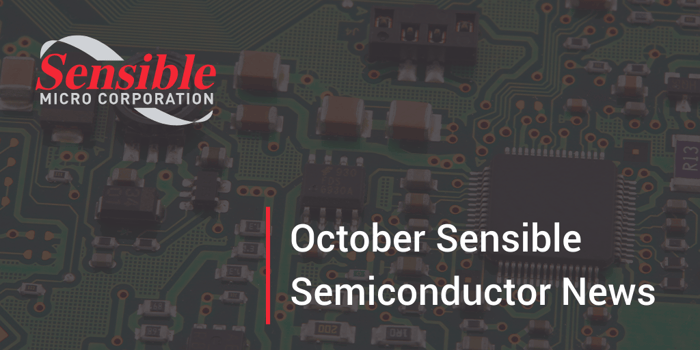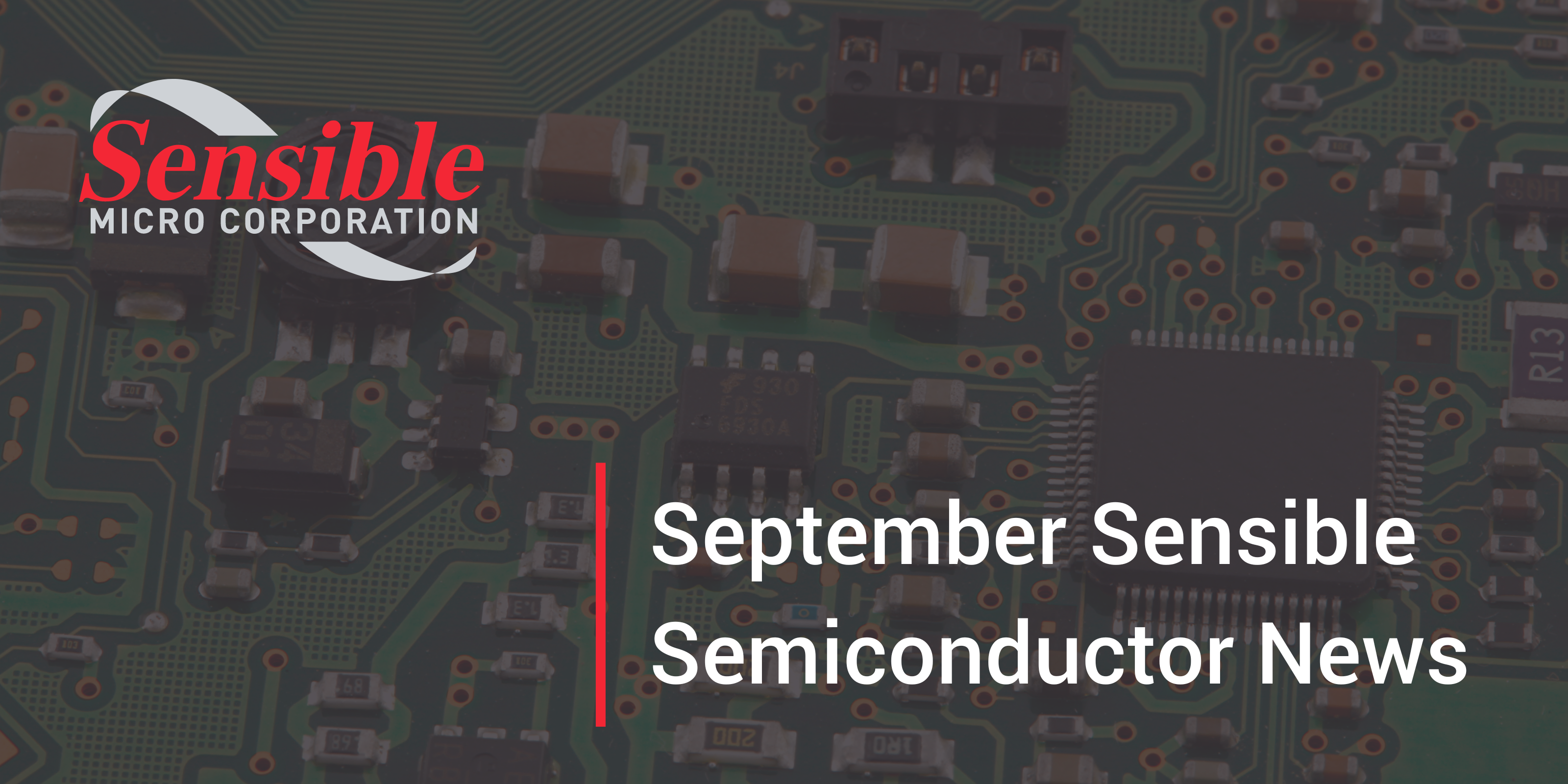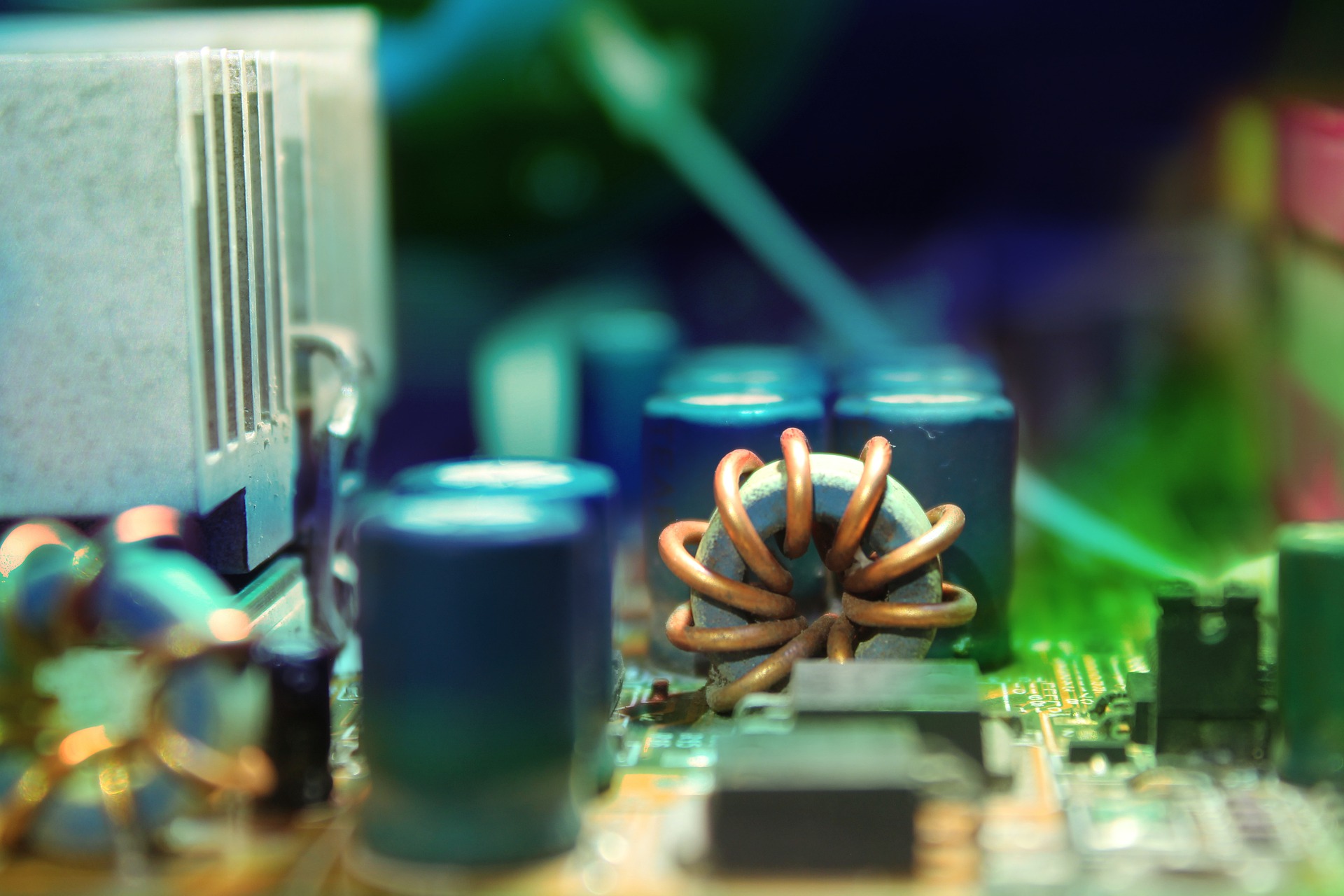The Sensible Micro semiconductor news update for September includes some of the latest information impacting the electronic components industry, including:
- Nvidia, AMD Face New Limits on Exports of Advanced AI Chips
- Companies Still Struggle to Trace Origins of Conflict Minerals
- Intel Commits $1.2 Billion to Expand Operations in Costa Rica
- Intel Abandons $5.4 Billion Tower Semiconductor Deal Over Lack of China Approval
- U.S. Won't Sell Advanced Chips to China to Choke Military Capacity
- Bosch Buys TSI Semiconductors, Plans $1.5B US Chip Plant for EVs
Nvidia, AMD Face New Limits on Exports of Advanced AI Chips
The U.S. has expanded restrictions on the export of advanced artificial intelligence chips made by Nvidia and AMD beyond China to other regions — including the Middle East. Nvidia said the restrictions would not immediately impact revenue, it signals an escalation of U.S. efforts to limit China's tech capabilities. AMD also received a letter outlining similar restrictions. Last year, AMD said it had to halt exports of its MI250 AI chips to China due to new licensing rules. Since then, Nvidia, AMD, and Intel have all announced plans to create less powerful AI chips that can still be exported to China.
Neither company provided details on the specific new licensing requirements. The U.S. Commerce Department also declined to comment on whether it imposed new export requirements on specific companies.
Companies Still Struggle to Trace Origins of Conflict Minerals
In 2010, Congress passed a law requiring companies listed in the US to determine if their products contain certain "conflict minerals" from the Congo region that help fund armed groups. Thirteen years later, a new report finds many companies still aren't doing enough to verify their minerals are not from conflict zones, with over half of companies surveyed unable to determine the origin of their minerals.
The law was an attempt to cut off funding sources to armed groups by requiring disclosure on the sourcing of certain elements. Companies are required to conduct inquiries in good faith to find the origin of minerals. But a recent Government Accountability Office report says only about half of companies made initial determinations on origins last year. Of those doing further due diligence, over half could not confirm their minerals did not come from Congo or neighboring countries.
Intel Commits $1.2 Billion to Expand Operations in Costa Rica
Intel plans to invest $1.2 billion in its Costa Rica operations over the next two years, building on its over 25-year history in the country. The investment comes after the US government pledged support for Costa Rica's semiconductor sector. The funding will aim to upgrade Intel's existing facilities in Costa Rica, where it currently employs over 3,000 direct workers. Intel says the goal is to enable new technologies and meet growing demand, aided by government partnerships to enhance competitiveness.
Intel Abandons $5.4 Billion Tower Semiconductor Deal Over Lack of China Approval
Intel has scrapped its planned $5.4 billion acquisition of Israeli chip maker Tower Semiconductor after the merger agreement expired without receiving regulatory approval from China. Intel will pay a $353 million termination fee under the agreement.
The abandoned deal highlights how continuing tension between the US and China is creating obstacles as the required regulatory sign-off from China was not secured in time. The expiration of the merger agreement marks the end of Intel's year-long effort to purchase Tower.
U.S. Won't Sell Advanced Chips to China to Choke Military Capacity
In an interview on NBC's Meet the Press, U.S. Secretary of Commerce Gina Raimondo stated that the United States will not be exporting its most sophisticated superconductor chips to China. She indicated this stance aims to “choke China's military capacity” amid months of rising tensions between the two countries. Raimondo believes that the U.S. strategy is working if China feels its military technology is being targeted.
She also reaffirmed plans to rebuild America's semiconductor manufacturing ecosystem by the end of the decade to regain prominence in advanced chip production and packaging. The Commerce Secretary stressed the U.S. will have a deep,” best-in-the-world semiconductor industry in America” again by 2030. Her firm stance indicates tensions will remain high as the U.S. seeks to limit China's military capacity through chip export controls.
Bosch Buys TSI Semiconductors, Plans $1.5B US Chip Plant for EVs
German engineering giant Bosch Group closed the deal to acquire California-based semiconductor manufacturer TSI Semiconductors for an undisclosed amount, announcing plans to invest $1.5 billion to convert TSI's Roseville chip fabrication plant into a US-based production facility for silicon carbide semiconductors used in electric vehicles. The move establishes Bosch's foothold in the U.S. for manufacturing chips that extend EV battery range.
Production at the new Bosch subsidiary is slated to begin in 2026.
Stay Up-to-Date on Semiconductor News with Sensible Micro
The Sensible Micro team has deep industry connections and is always on the lookout for electronic component news to help you manage your business. Our robust global network often enables us to access critical insights early, even before many OEMs and manufacturers.
Stay informed with Sensible Micro with the electronic components industry news you need to prepare for what’s ahead.
New Sources:


















